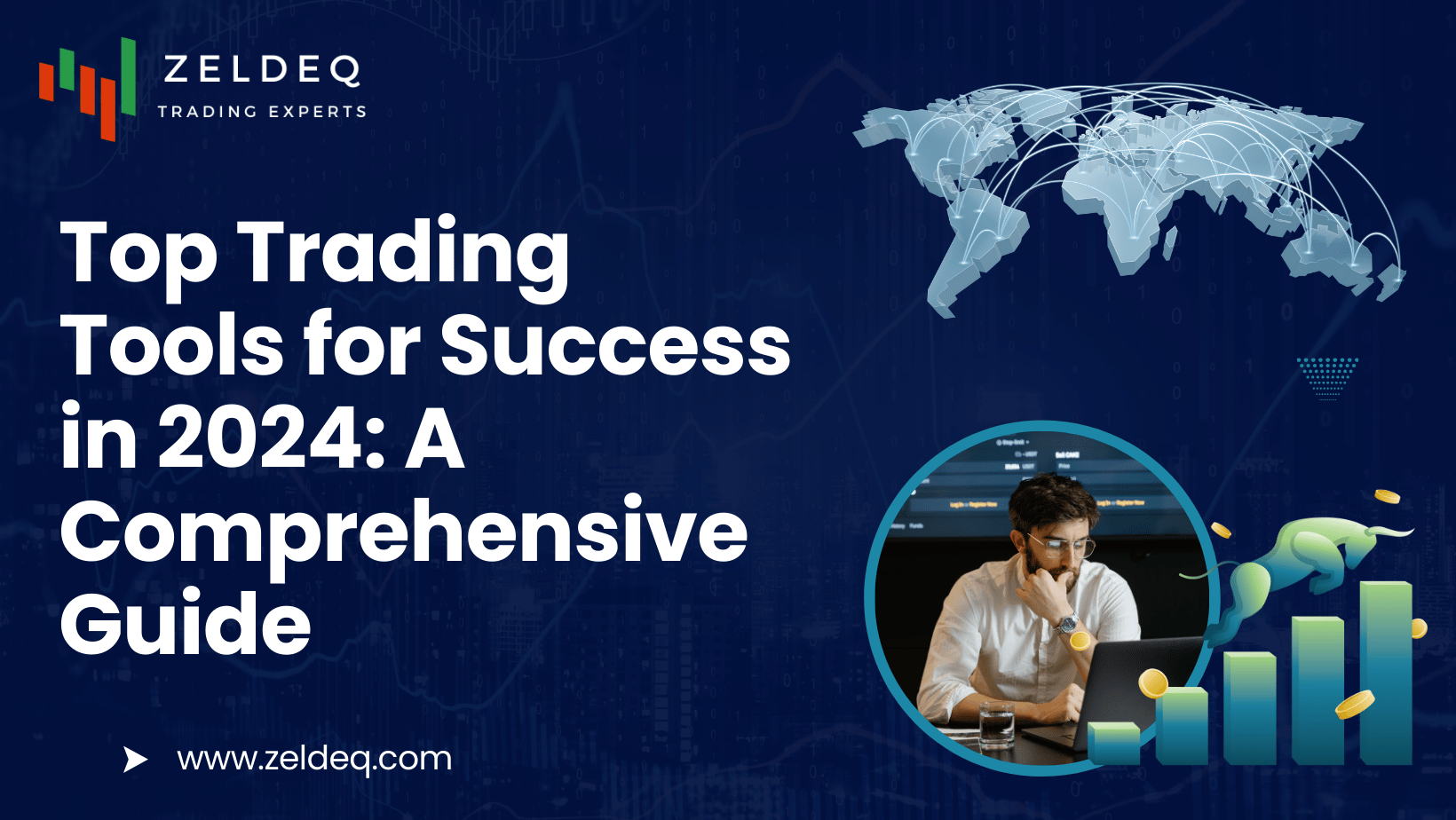Table of Contents
- Introduction
- Why Trading Tools Matter
- Types of Trading Tools
- Popular Trading Tools for 2024
- Choosing the Right Tools for You
- Frequently Asked Questions
- Conclusion
Introduction
In the fast-paced world of trading, having the right tools can make all the difference between success and failure. As we step into 2024, traders have access to an array of innovative tools designed to enhance their trading experience, improve decision-making, and streamline their strategies. This comprehensive guide will explore the most effective trading tools available today, helping you navigate the complexities of the market with confidence.
The right tools empower traders to make better decisions and seize opportunities as they arise.
Why Trading Tools Matter
Trading tools are essential for several reasons:
- Data Analysis: They help traders analyze market trends and patterns effectively.
- Risk Management: Tools assist in assessing and managing risks associated with trading activities.
- Time Efficiency: Automating certain processes saves time, allowing traders to focus on strategy and execution.
- Decision Support: With real-time data and analytics, traders can make informed decisions quickly.
Investing in the right trading tools not only enhances your performance but also contributes to a more enjoyable trading experience.
Remember: the best traders aren’t necessarily those with the most knowledge, but those who can effectively use the tools at their disposal.
Types of Trading Tools
Charting Software
Charting software is crucial for visualizing market data. It allows traders to create customizable charts that present price movements and patterns over different time frames. Most software comes equipped with technical indicators, allowing traders to analyze price trends more effectively.
Popular Charting Software:
| Tool Name | Features |
|---|---|
| TradingView | Social networking, extensive indicators |
| NinjaTrader | Advanced charting, market analysis |
| MetaTrader | User-friendly interface, customizable charts |
Charting software is not just about aesthetics; it’s about clarity and finding patterns that can influence trading decisions.
Trading Platforms
A trading platform is where transactions are executed. A good platform provides a user-friendly interface, fast execution speeds, and comprehensive trading options. Many platforms also offer paper trading features for practice without risking real money.
Key Features to Look For:
- User interface design
- Order execution speed
- Variety of available assets
- Customer support
You can find more about the best trading platforms in our guide on Top Trading Platforms of 2024.
The choice of trading platform can significantly impact your trading performance—choose wisely!
News Aggregators
Staying updated on market news is vital for making informed trading decisions. News aggregators compile financial news from various sources, providing traders with real-time updates. This can include economic indicators, earnings reports, and geopolitical events that may impact financial markets.
Recommended News Aggregators:
In trading, information is power. A news aggregator can help you stay one step ahead.
Technical Analysis Tools
Technical analysis tools help traders evaluate securities by examining statistical trends gathered from trading activity. These tools often include features for backtesting trading strategies and identifying patterns.
Common Tools Include:
- Fibonacci Retracement
- Moving Averages
- Relative Strength Index (RSI)
You can learn more about technical analysis in our article on 10 Essential Concepts in Technical Analysis for Beginners.
Technical analysis is like learning a new language—once you understand it, you can communicate effectively with the market.
Risk Management Tools
Effective risk management is essential for long-term trading success. Risk management tools help traders set stop-loss orders, assess trade sizes, and manage their overall portfolio risk. These metrics can significantly minimize losses.
Risk Management Strategies:
| Strategy | Description |
|---|---|
| Position Sizing | Determine the amount of capital to risk per trade |
| Diversification | Spread investments across different assets |
| Stop-Loss Orders | Set limits to automatically close losing trades |
For a deeper understanding of risk management, check out our guide on Essential Strategies for Effective Risk Management in Trading.
Effective risk management is the cornerstone of sustainable trading success.
Popular Trading Tools for 2024
MetaTrader 4 and 5
MetaTrader platforms are among the most popular trading tools worldwide. They are known for their advanced charting capabilities, automated trading options, and a vast library of indicators. MetaTrader 5 offers additional features like more timeframes and the ability to trade stocks.
MetaTrader is often regarded as the gold standard among trading platforms, offering versatility and reliability.
TradingView
TradingView is an excellent tool for both beginners and experienced traders. Its social networking feature allows users to share ideas and strategies. With its dynamic charting tools, real-time data, and comprehensive analytics, TradingView is a staple for many in the trading community.
The community aspect of TradingView can provide fresh perspectives and insights that are invaluable for traders.
Thinkorswim
Offered by TD Ameritrade, Thinkorswim is a powerful trading platform that provides extensive research tools and educational resources. It features advanced charting, options analysis, and a customizable interface that caters to various trading styles.
Thinkorswim is designed for traders who seek in-depth analysis and research capabilities at their fingertips.
Bloomberg Terminal
The Bloomberg Terminal is a premium tool favored by professional traders. It provides extensive market data, analytics, and news, all in real-time. While it comes with a hefty price tag, its comprehensive features justify the investment for serious traders.
For professionals, the Bloomberg Terminal is often viewed as an essential investment for staying competitive in the market.
Choosing the Right Tools for You
When selecting trading tools, consider the following:
- Your Trading Style: Are you a day trader, swing trader, or long-term investor? Different tools may suit different styles.
- Budget: Some tools come with subscription fees. Determine what you can afford without compromising your trading strategy.
- Ease of Use: Choose user-friendly platforms that won’t overwhelm you, especially if you’re just starting.
The right tool should complement your trading style and enhance your decision-making process.
Frequently Asked Questions
What are the best trading tools for beginners?
Beginners should consider platforms like TradingView and MetaTrader due to their user-friendly interfaces and extensive educational resources. For a detailed overview, check out our Essential Trading Costs and Fees Beginners Should Know.
Do I need to pay for trading tools?
While many tools offer free versions, premium features often require a subscription. Evaluate your needs to determine if the cost is justified.
Investing in quality tools can often pay off in the long run by improving your trading outcomes.
How can I improve my trading skills?
Utilize demo accounts, join trading communities, and continuously educate yourself through webinars and courses. Our article on 10 Essential Steps to Start Trading Successfully in 2024 can provide useful insights.
Conclusion
In 2024, the landscape of trading tools is more diverse and powerful than ever. By leveraging the right tools, you can enhance your trading strategies, manage risks more effectively, and ultimately increase your chances of success. Remember, the best trading tool is one that fits your unique style and needs. Happy trading!
By investing time in understanding and utilizing these tools, you’ll be well on your way to achieving your trading goals in the coming year.
For further reading, check out Investopedia’s Guide on Trading.


